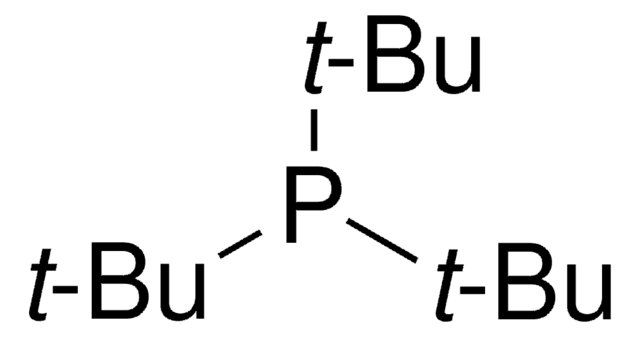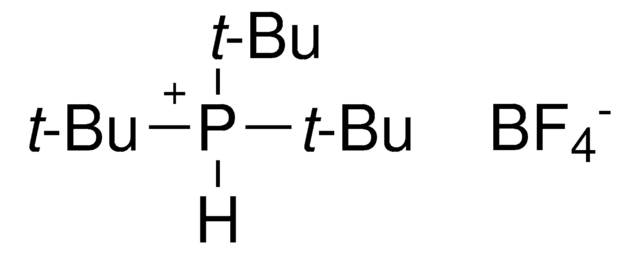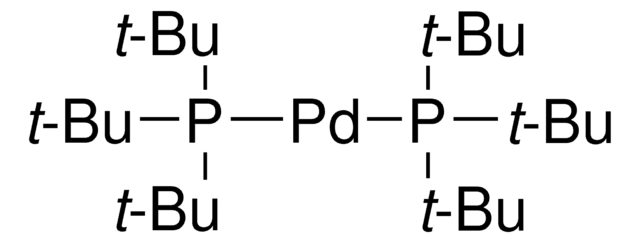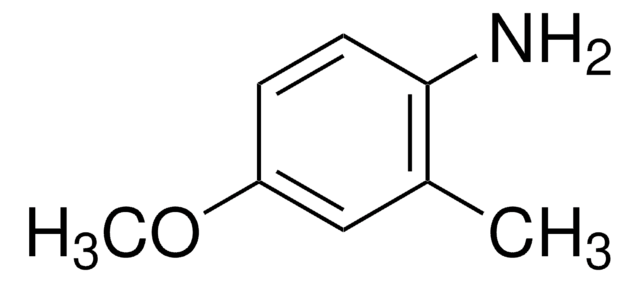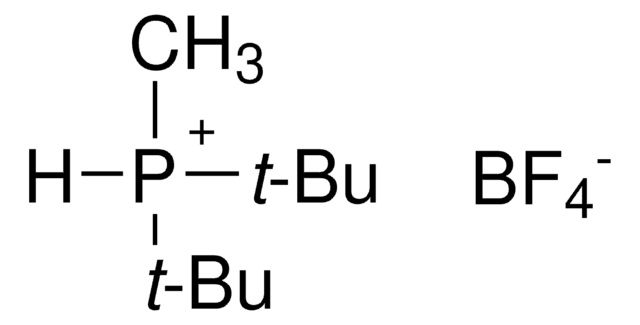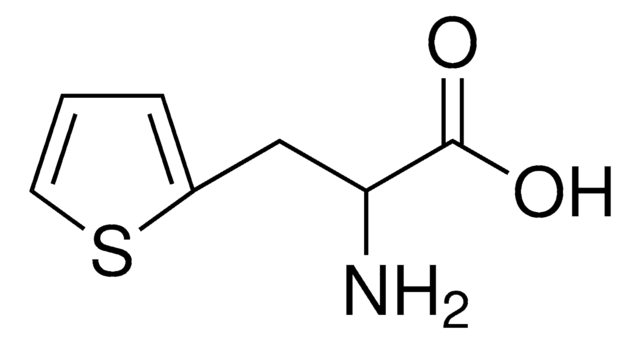655325
Tri-tert-butylphosphine solution
1.0 M in toluene
Synonym(s):
P(t-Bu)3, P(t-Bu)3
About This Item
Recommended Products
Quality Level
reaction suitability
reagent type: ligand
reaction type: Addition Reactions
reagent type: ligand
reaction type: Buchwald-Hartwig Cross Coupling Reaction
reagent type: ligand
reaction type: Heck Reaction
reagent type: ligand
reaction type: Negishi Coupling
reagent type: ligand
reaction type: Sonogashira Coupling
reagent type: ligand
reaction type: Stille Coupling
reagent type: ligand
reaction type: Suzuki-Miyaura Coupling
concentration
1.0 M in toluene
density
0.861 g/mL at 25 °C
functional group
phosphine
SMILES string
CC(C)(C)P(C(C)(C)C)C(C)(C)C
InChI
1S/C12H27P/c1-10(2,3)13(11(4,5)6)12(7,8)9/h1-9H3
InChI key
BWHDROKFUHTORW-UHFFFAOYSA-N
Looking for similar products? Visit Product Comparison Guide
Related Categories
Application
- Heck Reactions
- Negishi cross-coupling
- Stille reactions
- Sonogashira reactions
related product
Signal Word
Danger
Hazard Statements
Precautionary Statements
Hazard Classifications
Aquatic Chronic 3 - Asp. Tox. 1 - Eye Dam. 1 - Flam. Liq. 2 - Repr. 2 - Skin Corr. 1B - STOT RE 2 - STOT SE 3
Target Organs
Central nervous system, Respiratory system
Storage Class Code
4.2 - Pyrophoric and self-heating hazardous materials
WGK
WGK 3
Flash Point(F)
39.9 °F
Flash Point(C)
4.4 °C
Personal Protective Equipment
Regulatory Listings
Regulatory Listings are mainly provided for chemical products. Only limited information can be provided here for non-chemical products. No entry means none of the components are listed. It is the user’s obligation to ensure the safe and legal use of the product.
EU REACH Annex XVII (Restriction List)
Choose from one of the most recent versions:
Already Own This Product?
Find documentation for the products that you have recently purchased in the Document Library.
Customers Also Viewed
Our team of scientists has experience in all areas of research including Life Science, Material Science, Chemical Synthesis, Chromatography, Analytical and many others.
Contact Technical Service